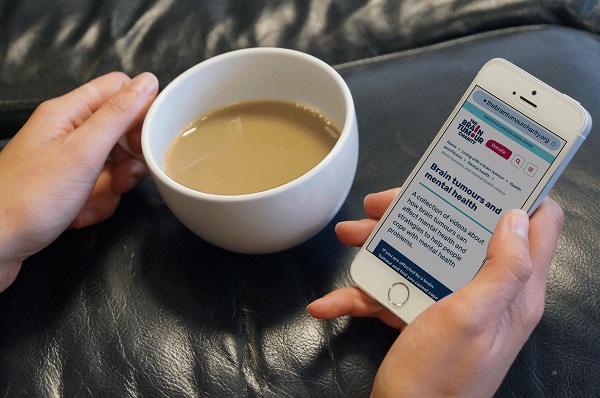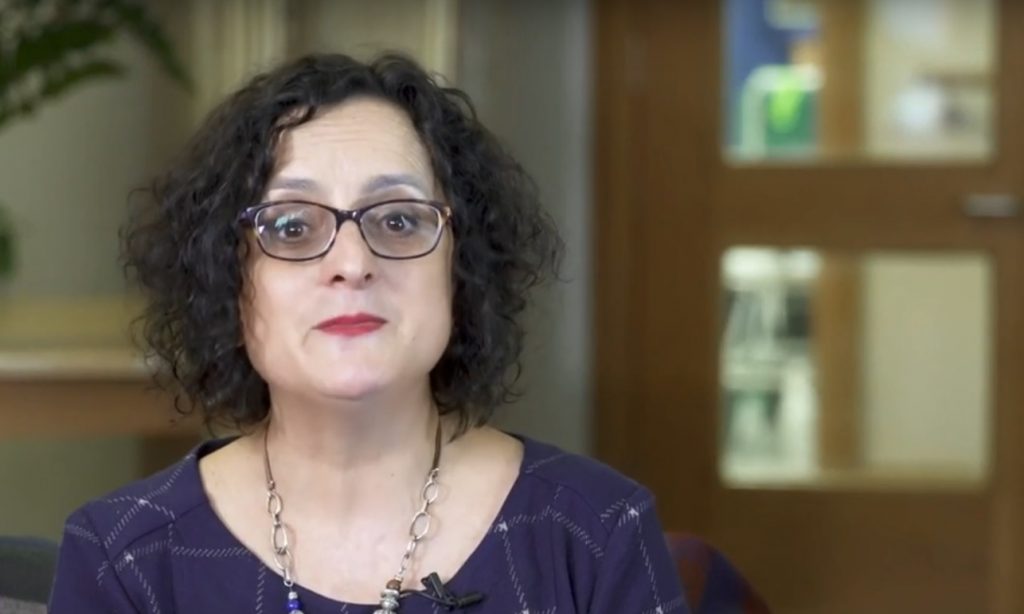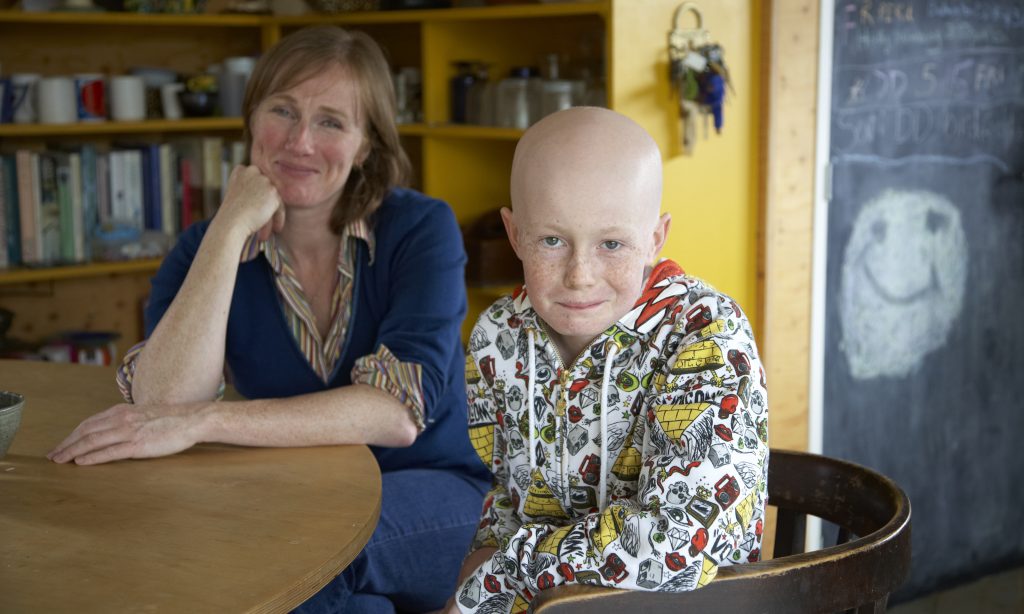My child has a terminal brain tumour
If you’re told, your child has a terminal brain tumour and is approaching the end of their life it is devastating. Whatever their age, it is likely to be the most difficult time of your life. It’s not something that parents expect to have to deal with. It goes against the ‘natural order’ of events and you may resent the loss of their future and your future with them.
Here we offer some information that might help in this difficult time.
On this page:
- When your child has a terminal brain tumour and is approaching end of life
- When does end of life care start for my child?
- What does end of life care for my child involve?
- What can I do before my child dies?
When your child has a terminal brain tumour and is approaching end of life
It can be overwhelming – despair, disbelief, anger, agony, loss, grief and guilt are just some of the emotions you may feel. Of course, everyone is different – you feel what you feel.
Grief and bereavement start before your child dies. This is known as anticipatory grief. For this reason, many of the organisations and services listed on Bereavement support – when your child dies, also help parents before the death of their child, as well as after.
Here we help to answer some of the more practical questions you may have when your child is approaching end of life, such as:
- What is best for my child in terms of ongoing treatment and care?
- How can I best help my child to cope with this?
- What other help can I ask for?
- What are the practicalities before and after death?
Everyone is different and will deal with it differently. This page has information and suggestions to help you through this difficult time.
Find out about:
- When does end of life care start for my child?
- What does end of life care for my child involve?
- What can I do before my child dies?

Our Children and Families team is here to help you find the support you and your family need following the death of your child.
When does end of life care start for my child?
End of life care begins when your child needs it. It can last from a few days to months or years. People might consider that their children are approaching the end of life if they’re likely to die within the next 6 months, though this can’t always be accurately predicted.
Nothing will ever be as painful as letting my child go but I know that having achieved a ‘good’ death – no, an excellent death – with our team for him, is without doubt going to be the single biggest achievement of my life and it continues to be an immense source of comfort.
Sacha

Free counselling
If you need to talk, we’re here for you. We offer free sessions to help you cope.
What does end of life care for my child involve?
As parents, you’re the experts when it comes to your child and the care they should receive – this doesn’t stop when they’re coming to the end of their life. The healthcare professionals caring for your child will include you (and, when appropriate, your child) in their discussions around end of life, and will explain their decisions to you. This will help you make informed decisions about their care. Of course, you can always have someone in the discussion with you and/or get a second opinion.
You may feel that by accepting end of life care you’re giving up on your child – but this is not the case. End of life care is the active, total care of your child at a time when their disease is no longer responsive to curative treatment. Its purpose is to ease the symptoms for your child and provide emotional, social, practical, spiritual and other support to your entire family. They’ll continue to receive medications, if appropriate, but these are to treat their symptoms, rather than their tumour, and to make them more comfortable.
It’s difficult to face up to the reality of the ‘D’ word, but denial and fear is often the enemy.

Join our online community
Our closed Facebook group is a great place to connect with other parents affected by a brain tumour and share your experiences.
What can I do before my child dies?
Research has shown that planning for things that need considering or putting in place, before you actually need them, can help you, your child and your family come to terms with what is happening. It can also give you some control back in a situation that might feel out of your control, and help with grieving and the bereavement process.
-
Writing a plan for where your child dies and the care you want for your child at the end of their life can be a positive and supportive thing to do. This can give you some control at this difficult time. Some choices are only possible for your child with planning, such as brain donation or deciding what will happen to their social networking accounts after they die, often called their digital legacy.
This is called advance care planning. Talk to your child’s healthcare team about the care choices your child has and about setting up an Advance Care Plan (ACP).
Doing this helps to make sure that everyone knows your/your child’s wishes and they can put things in place for your child’s care to run smoothly.
It can help to prevent, for example, unwanted admissions to hospital. It can also prompt the difficult conversations around symptom management, organ donation and how and where you/your child wants their funeral to be. You may want to visit a hospice to get a feel of the place and the staff, or investigate having hospice care at home.
In the plan, you could also designate a close family member or friend to act as a co-ordinator to communicate your desires/needs to others and sort out the practical issues after your child dies.
Planning ahead allows you to think about practical issues, make the important decisions and put things in place so that they’re out of the way and you can then forget about them until you need them. You can then spend your time with your child, focussing on your, your child’s and your family’s feelings and needs.
You can find more information about creating an Advance Care Plan, including suggestions for things you may want to discuss with your child’s healthcare team, here:
- Together for Short Lives
Helps children and their families living with a life-limiting or life-threatening condition get the very best care and support they can, so they can make the most of every moment together.
- Together for Short Lives
-
We all tend to avoid talking about death and dying, and it can also be very difficult to decide whether to tell your child they’re dying.
While it will depend on your child’s age and whether it’s right for your family, talking about death can help demystify it. It can help you know what you and/or your child want and, depending on your child’s age, help you support them (and their brothers and sisters) in talking about and alleviating their fears. Not talking about it can lead to feelings of isolation.
Brothers and sisters will need time to come to terms with it all and need just as much support and understanding as you, the parents. It’s important for them to spend time with their sibling, building memories they can take with them through the months and years following their death.
Of course, talking about death can be really difficult and most people don’t know how to go about it or how to start the conversation.
Be aware that this is unlikely to be a one-off conversation and don’t feel that you have to always get it right. The more you talk, the easier it will become.
The following organisations and websites give helpful advice on how to talk about death to your child, to people in your family and to friends:
- CCLG (Children’s Cancer and Leukaemia Group):
Preparing for your child’s death - Dying Matters:
Talking about death and dying - CLIC Sargent:
Facing death and talking about it: a booklet to help young people (aged 17+) - Child Bereavement UK:
When a sibling is not expected to live: supporting children
- CCLG (Children’s Cancer and Leukaemia Group):
-
For older children who have social media accounts, it will save a lot of difficulty if you put measures in place to sort out what will happen to these. It can be difficult to talk to your child about this, but if you can, try to ask them what they would like to happen to their accounts.
If they would like their accounts closed after they die, they could write down the various passwords and give them to a trusted friend or family member. Or they could set up password managers on their computer and leave details in their Will.
Facebook now allows people to request that their account is permanently deleted after they die or they can set up someone they trust as a legacy contact to manage their account after they die. Either of these can be set up from Settings.
A legacy contact can pin a tribute post on their timeline and respond to new friend requests, but they can’t post as the person or see their messages. Depending on the settings, other friends can share memories of your child.
If measures have not been in place, although family members can request an account to be permanently deleted, it’s a much more complicated process, involving proof that your child has died and also that you’re an immediate family member.
Unless you have relevant passwords, Twitter, Instagram, other social media networks and email accounts also require much documentation to deactivate an account after someone has died, regardless of a person’s relationship to them. This process can be distressing as well as time-consuming. The only alternative is to close the account beforehand, which may be extremely upsetting to your child and not what they want so it helps to have the passwords stored and given to a trusted person or written in a Will.
Twitter:
Instagram:
- Deactivating an Instagram account (with password)
- Deactivating an Instagram account (without password)
For other social media and email accounts, details of their processes can be found on the relevant company’s website.
-
It’s very important at this time to also look after yourself physically. This will help you face the stress and the challenges you’re likely to meet. You may be caring for many hours a week, including at night. If you’re not well, you’ll be less able to support your child and family.
You can find more information about how this can help, here:
- Child Bereavement UK:
Maintaining your physical wellbeing
- Child Bereavement UK:
-
Some people don’t want to know, so this section may not be for you. But other parents ask how they’ll know that death is approaching.
What happens in these last few days/hours is different for everyone, but it can help you to support your child, your family and yourself if you know what might happen.
Knowing what are natural physical changes, and how to manage them, means you won’t be worrying that it’s a medical emergency which requires more drastic intervention. Some physical changes can be distressing to parents if they’re not aware that this is a normal part of the dying process.
Ask your child’s medical team which symptoms your child is likely to have. You may feel you don’t want to ask, but they’re comfortable having these conversations.
-
This is not something that many parents think about or know about, and some find it hard to consider. But when parents have heard about it, some have said they wish they’d been given the option before their child died. Others have donated their child’s brain and found it a comfort.
Giving researchers access to brain tissue helps them develop new and better treatments to help find a cure and prevent brain tumours affecting other families in the same way. It can help people feel their child is making a difference and saving lives indirectly.
If this is something you think you/your child would like to do, it needs to be planned in advance.
More information about this, including a video of one mum’s story about why she and her family decided to donate her daughter’s brain to research, can be found on our Brain donation page.
Support and Information Services
Research & Clinical Trials Information
You can also join our active online community.
In this section

Get support
If you need someone to talk to or advice on where to get help, our Support and Information team is available by phone, email or live-chat.

In this Marie Curie video, nurse Maria describes the common changes that you might notice in someone’s last weeks, days and hours of life.
If you’re caring for someone who is dying, you might find that there are some things you can relate to. But you might find that you don’t notice these changes or that you notice them at different times – everyone’s experience is different.

Dying well
Sacha lost her 16-year-old son David (DD) to a brain tumour in 2012. We invited her to share her family’s experience, and her passion for improvement in end-of-life care.